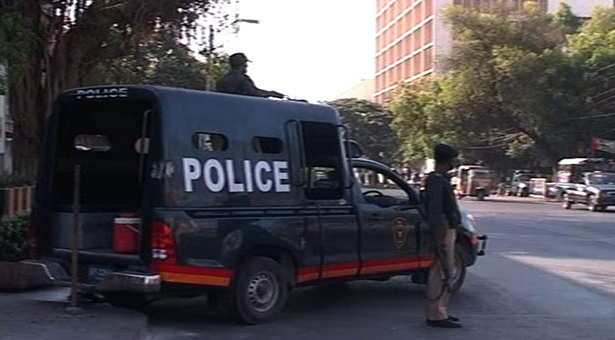Pakistan Taliban Claims Responsibility for Karachi Bombing
Attack on the Sindh Police

NEW DELHI: At least two policemen have been killed and 14 injured in an explosion near Murghi Khana bus stop in Karachi's Quaidabad area. The explosions, planted on a motorcycle, detonated as a bus of the Sindh Police's Special Security Unit passed the area.
The Tehreek-i-Taliban Pakistan (TTP), in a statement to Pakistani paper Dawn News, claimed responsibility for the attack.
The attack follows a particularly violent week in Pakistan, where three deadly attacks killed 17 people. A week ago on Friday, two people were killed in a blast that took place during Friday prayers outside the Saleh Mosque for Bohra community worshippers in Karachi. The Sunday before that, a Taliban attack on two churches in Lahore killed 15 people and injured over 70 others.
Whilst these recent attacks have targeted Pakistan’s vulnerable minorities, attacks on the police -- especially in Karachi -- are by no means unusual. It is estimated that more than 8000 people have died in the last five years in violence related to militancy, sectarian outfits and criminal gangs operating in Karachi -- once the commercial hub of Pakistan. 2013 was the worst year thus far, with figures released by the Sindh Police Department placing the numbers killed at 2715. The Department stated that 9229 targeted raids were carried out in 2013 in which 13906 alleged criminals were arrested.
In the same year, sectarian violence increased by 53 percent in Pakistan, according to a report released by the Pakistan Institute for Peace Studies (PIPS), with 85 percent of sectarian violence attacks and 68 percent of people killed in such attacks concentrated in Karachi, Quetta, Gilgit and Kurram Agency. 2013 was witness to 132 sectarian related attacks in Karachi, in which 212 people lost their lives. The close ties between the banned sectarian group Lashkar-i-Jhangvi (LJ) and the TTP reflects the dangerous nexus of sectarian and militant outfits in the city.
In addition to militant and sectarian groups, Karachi is home to hundreds of gangs involved in organized crime. Lyari, an ancient town in Karachi, emerged as an epicentre of rival gang warfare with groups such as the Rehman Dakait Group, the Arshad Pappu Group, amongst others, operating in the area.
The activities of these outfits has led to the emergence of a volatile situation, threatening stability in a city that earns 60-70% of Pakistan’s national revenue. The expansion of militant groups also has political implications, with secular parties, especially the anti-Taliban Awami National Party (ANP) and the Muttahida Quami Movement (MQM), standing the most to lose. The most worrying aspect of the operations of militant, sectarian and criminal groups is the impact on civilian life, evinced by the numbers killed in violence-related incidents in the city.
The Pakistani government has claimed to take cognizance of the situation in Karachi, with Prime Minister Nawaz Sharif commending the Rangers and expressing a commitment to ongoing operations till peace and security are restored to the city. Other political parties and groups, including the Pakistan People’s Party (PPP), Awami National Party (ANP), Jamaat-e-Islami (JI) and Jamiat Ulema-e-Islam (JUF-F), have expressed their support for state-led targeted action.
However, government action has come under widespread criticism, with the Human Rights Commission of Pakistan (HRCP) stating that addressing the violence in the city does not appear to be a priority for the government. Analysts point to a systemic issue in Karachi: the fact that most stakeholders, including political parties, have ties to militant outfits operating in the city. The government’s dual action of targeted operations coupled with the willingness to engage in dialogue with militant groups has come under criticism as a strategy, with the government’s resolve to curb violence being questioned.
The current problem in Karachi is reflective of the two main wider issues faced by Pakistan. One, an expanding population complicating the pressures of lacking infrastructure and furthering entrenched corruption. Two, the nexus of and links between militant and terrorist groups, sectarian outfits and political parties in the country. There is an imperative need for a long-term, institutional solution to violence in Karachi and in the rest of the country, which demands a commitment from the ruling party in the form of will and resources.



